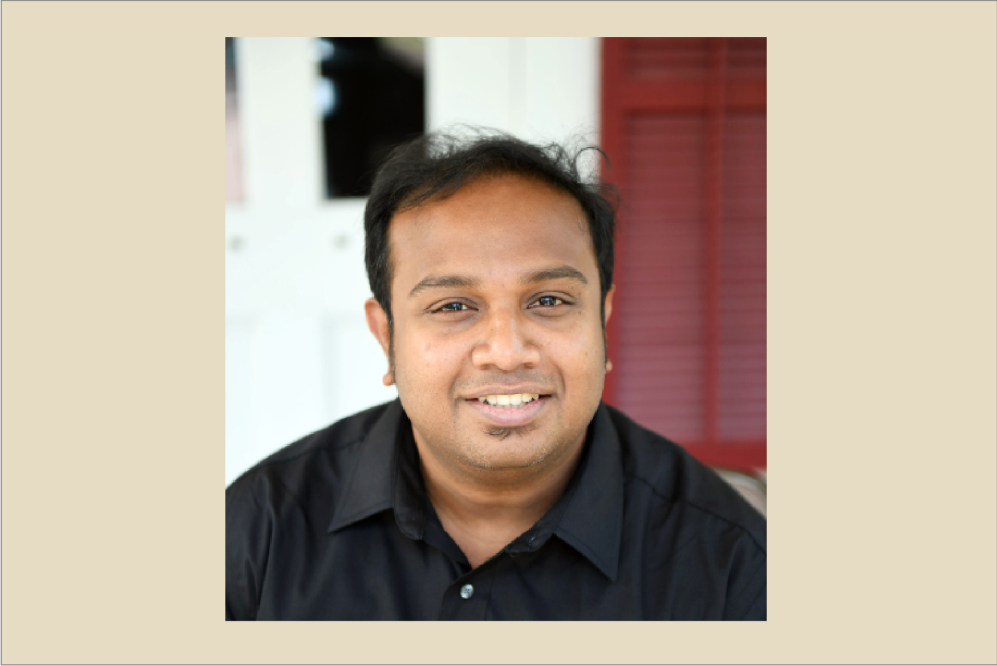National Science Foundation honors Shayok Chakraborty with the NSF CAREER Award

Shayok Chakraborty, Ph.D., Assistant Professor of Computer Science and a Faculty Affiliate of the Institute for Successful Longevity, has been honored by the National Science Foundation with its CAREER Award.
The NSF CAREER Award is considered a leading honor for early career researchers.
Dr. Chakraborty said this award meant a lot to him. “People are recognizing my research, and appreciating my research ideas,” he said. “People are appreciating the vision that I have with this five-year project.”
Dr. Chakraborty’s current research involves weakly supervised machine learning. “The idea is, if you want to train any kind of machine-learning model, you need a lot of labeled samples,” Dr. Chakraborty said. “For example, let's say we want to develop a machine-learning model to recognize cancer and non-cancer images. We would need a lot of images that are cancer and a lot of images that are non-cancer. And then we can try to train a model to distinguish between the two.” But it is time-consuming, Dr. Chakraborty explained, to get those images labeled as cancer or non-cancer.
“A physician has to sit and label a lot of samples for us, but we can't really expect a busy doctor to hand-annotate a lot of samples,” Dr. Chakraborty said. To address this, Chakraborty works to develop intelligent machine-learning algorithms, capable of distinguishing images of cancer cells from those of non-cancer cells, for example, without heavy human supervision.
There are many challenges to the development of such machine-learning capabilities. “The AI [artificial intelligence] model has to be smart enough to figure out whether the label it gets is correct or not,” since it is possible for human experts to make errors, Dr. Chakraborty said. “It should be able to recognize an incorrect label and ignore that and learn only from the correct label, so the system has to be smart enough to do that. Well, that's a real challenge.”
Dr. Chakraborty is also working with Walter Boot, Ph.D., ISL’s Associate Director, and other ISL Faculty Affiliates on a project supported by a $2.9-million National Institute on Aging grant to promote early detection and treatment of age-related cognitive decline and dementia. The interdisciplinary team includes ISL Faculty Affiliates Zhe He, Ph.D., of the School of Information; Dawn Carr, Ph.D., of the Department of Sociology; and Antonio Terracciano, Ph.D., of the College of Medicine, as well as ISL Director Dr. Neil Charness. Dr. Mia Lustria of the School of Information is also a team member.
Prior to joining Florida State University, Dr. Chakraborty held a research faculty position at Arizona State University, where he was an associate director of the Center for Cognitive Ubiquitous Computing (CUbiC) laboratory. He received his Ph.D. in Computer Science from Arizona State University in 2013. He has worked as a post-doctoral researcher at Intel Labs, Oregon and in the Electrical and Computer Engineering department at Carnegie Mellon University.
Dr. Chakraborty has published his research in the top-tier conferences and journals in this field, including AAAI, IEEE CVPR, ACM SIGKDD and the ACM Multimedia conference, as well as the IEEE Transactions on Pattern Analysis and Machine Intelligence, IEEE Transactions on Neural Networks and Learning Systems among others. His paper on person-centered multimedia computing won the 2017 IEEE Multimedia Best Department Article Award. His research on artificial intelligence was featured in the Tallahassee Democrat in 2018 and in the ASU News in 2013 and 2017. He recently received the Faculty Research Award from the Department of Computer Science at FSU in recognition of his performance in the 2021 – 2022 academic year.
Dr. Chakraborty has presented tutorials based on his research on active learning at reputed venues such as IEEE ICME 2013, IEEE WACV 2019 and ACM Multimedia 2020. He also regularly serves in the program committee and as a reviewer of several reputed conferences and journals such as AAAI, IJCAI, IEEE CVPR, IEEE ICCV, ACM SIGKDD, ECCV, IEEE TPAMI and IEEE TNNLS among others.













